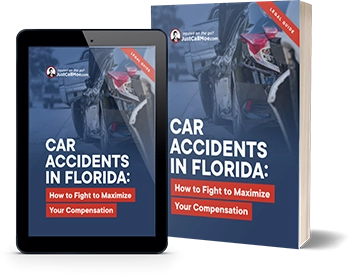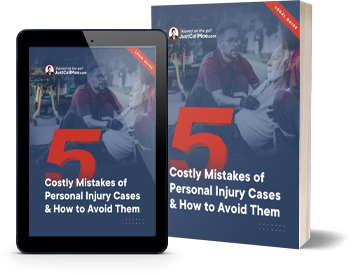When you are hurt in a Winter Haven car accident, you are entitled to compensation for your losses directly attributed to the crash. These losses are known as compensatory damages. In broad terms, compensatory damages can be further broken down into economic and non-economic damages.
Your economic damages are essentially any losses that can easily be measured in dollar terms, such as your medical bills or lost income if you had to take time away from your job. Non-economic damages are for losses that can not be precisely quantified yet still clearly exist, such as your pain and suffering due to the accident. In a personal injury lawsuit, you can seek the full measure of both economic and non-economic damages from a negligent defendant.
Florida Appeals Court: Dashcam Footage Not Enough To Support Award in Rear-End Accident Lawsuit
There is a third category of damages, which are known as punitive damages. Punitive damages are not about compensating you for your losses but rather punishing a defendant for acts or omissions that are considered so egregious as to injure the public as a whole, not just the victim. Punitive damages are effectively a form of civil punishment.
Even though you no doubt feel that your own car accident was egregious and the defendant should be punished, that alone does not justify an award of punitive damages under Florida law. In fact, before a plaintiff in a car accident case may seek punitive damages, they must first convince a judge that there is a “reasonable basis” for the request. In other words, the judge will not allow a jury to consider the question unless the plaintiff can demonstrate how the defendant’s actions were egregious in the first place.
For example, a Florida appeals court recently reversed a trial judge’s decision allowing a plaintiff to seek punitive damages in an ongoing car accident lawsuit. In this case, Mercer v. Saddle Creek Transportation, Inc., a semi-truck rear-ended the plaintiff’s vehicle, causing her serious injury. She subsequently sued both the semi-truck driver and her employer.
The plaintiff asked to amend her complaint to include a claim for punitive damages. She did so based on footage taken from the defendant’s dashboard camera, which purportedly showed him using his cell phone while driving just before the accident. Federal trucking regulations bar commercial truck drivers from using handheld phones while driving, except in emergency situations.
The appellate court, however, said that “[a]ll cell phone use is not equal.” And in this case, the camera footage did not show the truck driver using his phone in an especially egregious manner, such as watching a movie while driving. As such, the court said there was no basis for an award of punitive damages.
Injured in a Car Accident? JustCallMoe Today
It is critical following any car accident to conduct a full investigation into all of the events that led up to the crash. Our qualified team at JustCallMoe Injury and Accident Attorneys can assist you in these efforts. Contact us today to schedule a free consultation.

 (866) 225-5663
(866) 225-5663



